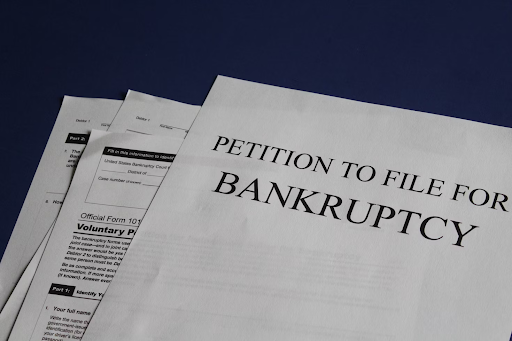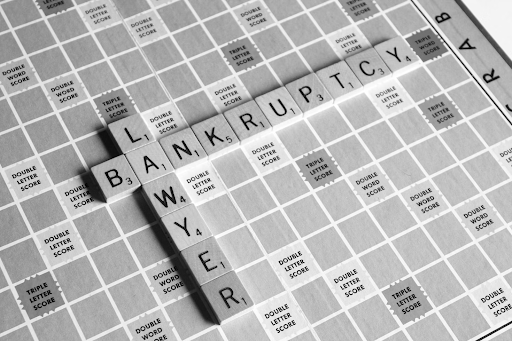Are you considering filing for bankruptcy? It’s a very serious and difficult decision to make, but there are times when it’s the only realistic option. Before taking the plunge, however, it’s important to understand the various aspects of bankruptcy so that you can make an informed choice and manage expectations accordingly. From understanding the different types and timelines involved with filing to tapping resources like free credit counseling and legal advice, this blog post will break down all the essential information you need to consider before deciding if bankruptcy is right for you.

Different Types of Bankruptcy
Bankruptcy can be a daunting process, but understanding the different types of bankruptcies available can make it less overwhelming. The two most common types of personal bankruptcy are Chapter 7 and Chapter 13. Chapter 7 involves liquidating your assets to pay off your debts, while Chapter 13 involves creating a repayment plan for your debts over three to five years. Resolutions to these differ from state to state. So someone in Tuscaloosa would need to work with a Chapter 13 attorney in Tuscaloosa, while someone in New York would require Chapter 13 attorneys in NYC. This is just one example of the varying local bankruptcy laws.
What is Bankruptcy and Who Qualifies for it
For many people, the thought of declaring bankruptcy can be daunting. But understanding what it is and who qualifies for it can help ease some of those fears. Essentially, bankruptcy is a legal process that allows individuals or businesses to get relief from overwhelming debt. It involves a court proceeding where the debtor’s assets are evaluated and used to pay off creditors. While each country’s bankruptcy laws may vary, the general qualifications for filing include having a certain amount of debt that cannot be paid off, not having enough income to repay the debt, and not having filed for bankruptcy in a certain timeframe. It’s important to seek professional guidance if considering bankruptcy, but knowing the basics can provide a starting point for exploring options.
Pros and Cons of Filing Bankruptcy
When it comes to filing for bankruptcy, there are both pros and cons to consider. On the one hand, filing bankruptcy can provide relief from overwhelming debts and stop creditors from pursuing legal action. It can also give individuals and businesses a fresh start, allowing them to rebuild their financial lives. However, the consequences of bankruptcy can also be significant, including a negative impact on credit scores, potential loss of property, and limited access to credit in the future. It’s important to weigh both the potential benefits and drawbacks before deciding whether or not to pursue bankruptcy as an option.
What To Expect When Filing For Bankruptcy
The process of declaring bankruptcy can be intimidating and overwhelming, however, while it may seem like the end of the road, it can be the start of a fresh financial beginning. When you file for bankruptcy, you can expect your financial affairs to be scrutinized by a court-appointed trustee, but this is just to ensure that any assets you do have are fairly distributed to your creditors. Bankruptcy may also affect your credit rating, but it’s important to remember that it’s a way to take control of your finances and get back on track. You’ll also receive counseling to help you manage your money going forward. So don’t be afraid to take this step if you need it – it could be the start of a brighter financial future.

How to Prepare for Filing for Bankruptcy
When it comes to filing for bankruptcy, preparation is key. An expert in the field, recommends starting by assessing your financial situation and determining which type of bankruptcy is right for you. This includes gathering all necessary financial documents, such as tax returns and bank statements. You should also consider seeking professional guidance from a bankruptcy attorney or credit counselor to ensure that you fully understand the process and its potential impact on your credit. Above all, it’s important to approach the process with honesty and transparency, as any attempt to hide assets or misrepresent your financial situation could result in legal consequences. With careful planning and guidance, however, filing for bankruptcy can be a fresh start to a more stable financial future.
All in all, filing for bankruptcy is a tough decision to make. It’s important to understand the risks involved and consider the implications it will have on your credit score and financial life. Bankruptcy can provide temporary relief during a difficult financial situation, but its consequences are long-lasting and far-reaching. Hopefully, this blog post has provided you with an in-depth look at what filing for bankruptcy entails so that you can make an informed decision when it comes to taking that big step of moving forward with filing. Ultimately, it is best to be prepared and understand all of the facts before making any decisions regarding your personal finances.
Interesting Related Article: “What Do You Lose if You Declare Bankruptcy?“

